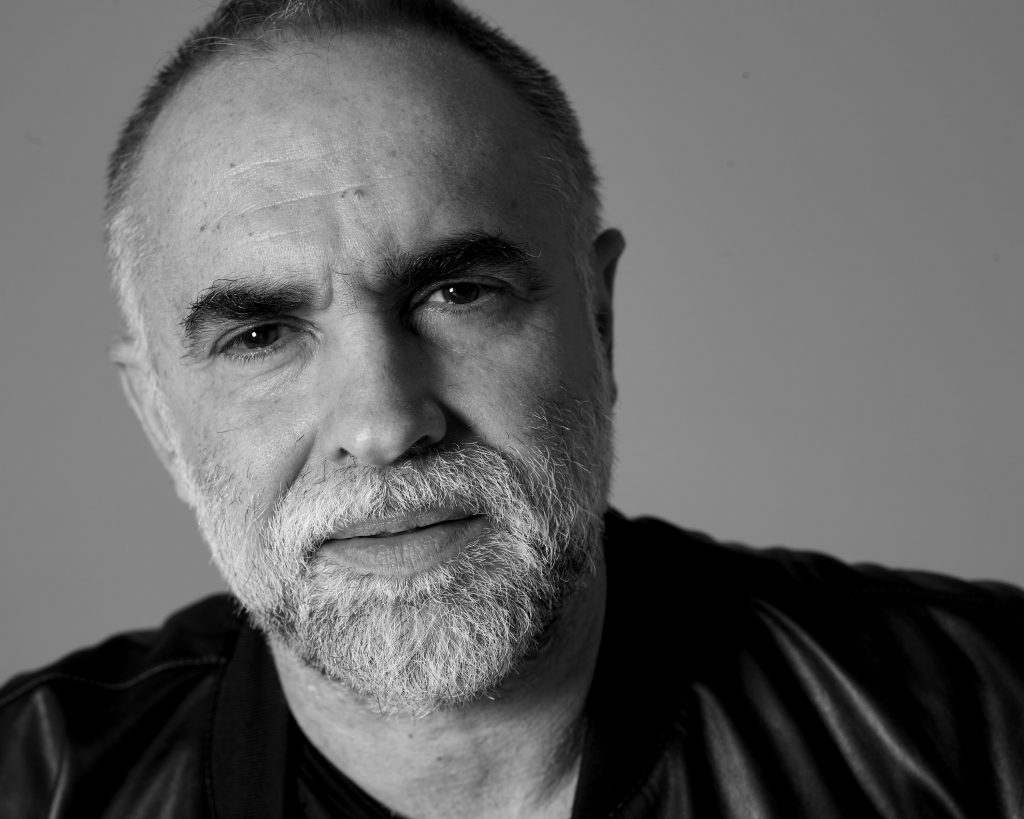Instead of fear and xenophobia, the isolation and uncertainty about the future brought by the COVID-19 pandemic has the potential to generate more empathy and solidarity towards others, including refugees.
That’s the hope of the Brazilian filmaker Karim Aïnouz, who launched directly on the streaming platforms his documentary “Central Airport THF”, which describes the situation of asylum seekers sheltered in the former Tempelholf Airport, in Berlin.
Built in the 1920s, the airport of gigantic proportions was renovated in the 1930s by the Nazi regime. Deactivated in 2008, it served as a shelter for asylum seekers between 2015 and 2019, today has been transformed into a public park.
In portraying the lives of those who fled from to survive, Aïnouz shows the “suspension of time” faced by refugees who wait for months – or even years – for a decision by the German Government regarding their stay in the country.
The documentary followed the lives of young Syrian student Ibrahim and Iraqi physiotherapist Qutaiba over the course of a year. While undergoing interviews, German classes and medical exams, they tried to deal with homesickness and the anxiety generated by the possibility of deportation.
Aïnouz believes it is possible to draw some parallels with the situation experienced by billions of people currently confined to their homes in the midst of the COVID-19 pandemic, who are facing financial difficulties and fear of infection.
“This inability to know what the future holds, the level of uncertainty and (the fact) that the decision regarding their future is no longer theirs, the situation is similar to what the former refugees were going through at that time”, said Aïnouz in an interview with the United Nations Information Center (UNIC Rio).
“There’s also a lesson of humility (…). They are people who have nothing, who have lost everything they had. They only have the ‘from now on’. So I thought it would be interesting to show the film specifically at this moment, on streaming platforms”, he said.
The documentary was released on Now, Vivo Play, Oi Play, Itunes, Google+, Filme Filme and Looke platforms. The feature film was due to open in Brazilian theaters on 26 March 2020, but due to the COVID-19 pandemic, Mar Filmes and Canal Brasil decided to release it directly on video on demand.
For the filmmaker, the documentary and the current crisis enables the viewer to not only put himself or herself in the place of refugees, but the film helps the viewer to relate to all of society’s most vulnerable people, such as the homeless and the poorest, who are at greater risk.
“In Brazil, we have Brazilian refugees within their own country, when you contrast the living conditions of the poor neighborhoods with those that are very affluent,” the filmmaker said. “I hope that this (the pandemic) will bring us closer to the pain of these people. I hope that this will enable us to be more supportive and less hostile.”
Hope
Despite living through a period of such uncertainty and waiting, when they are unable to return home or know for sure what their future will hold, the refugees portrayed in “Central Airport THF” remain hopeful that their lives will change for the better in the host community.
“When you see a 17-year-old boy who leaves his country, not because he wants to, but because he is escaping war, risking his own life to be in a place that is not his home, and he still has hope … it is very important that we try to show compassion towards each other”, said Aïnouz.
According to the filmmaker, the documentary presents an important lesson for all: people should have faith in the future and imagine that the future will certainly be better than the past. “Let’s imagine that our differences unite us rather than separate us” he said. “I hope the film causes a degree of empathy that it would not have caused if it had been released at another moment”, he added.
Hope also permeates the Brazilian filmmaker’s own relationship with the park that currently exists at the former Tempelholf Airport, which has become a public space due to pressure from the population itself.

Brazilian filmmaker Karim Aïnouz. Photo: Bob Wolfenson
“Whenever I’m there, I look at those airstrips and think, ‘Wow, I’m here riding a bike under this beautiful sun, with a vegetable garden over there, at a place where Hitler had once landed. So, there is this feeling of hope, and it is a public space that remains more alive than ever”, he explains.
Aïnouz – who has directed more than 15 films, including “The Invisible Life of Eurídice Gusmão”, which premiered in Cannes at the Un Certain Regard exhibition in 2019, predicts that movie theaters will be more sought after than ever after the pandemic, because people will want to make social contact when it is safe to do so.
In the filmmaker’s view, movies have never been more important as “storytelling machines”. “Imagine what it would be like to go through this pandemic without being able to watch a television series, a movie or read a book”, he said.
Importance of culture in the midst of COVID-19 – More than130 Ministers and Vice-Ministers of Culture joined a recent online meeting convened by UNESCO to discuss actions to bolster the cultural sector, which is facing unprecedented upheaval due to the COVID-19 pandemic. The ministers spoke of the direct effects of the current crisis on tourism, museums, cultural production and artists, as well as the measures that they have taken to mitigate the impact of the crisis. They reaffirmed their commitment to intergovernmental dialogue and international solidarity in order to strengthen and unite their efforts.
Support refugees during the coronavirus crisis – Countries across Latin America are calling on refugee and migrant health workers to support their national responses to COVID-19. Across the region, thousands are now working with national health systems responding to the pandemic while many more stand ready to support and give back to the communities sheltering them.
As COVID-19 cases increase by the day and already over-stretched health systems strain under mounting pressure, UNHCR, the UN Refugee Agency, is supporting these efforts that tap into the skills and resources that refugee medics can provide.
Several countries in the region have now put in place special measures. These authorize the hiring of foreign-qualified health professionals and technicians, including those awaiting licensing or whose certification is yet to be validated by host countries. Other states have adopted expedited recognition processes to fast-track their inclusion in national health responses.
Your donation will help aid the efforts of UNHCR .
Fonte
O post “Pandemic could generate more empathy towards refugees, says Brazilian filmmaker” foi publicado em 12th Maio 2020 e pode ser visto originalmente diretamente na fonte ONU Brasil

